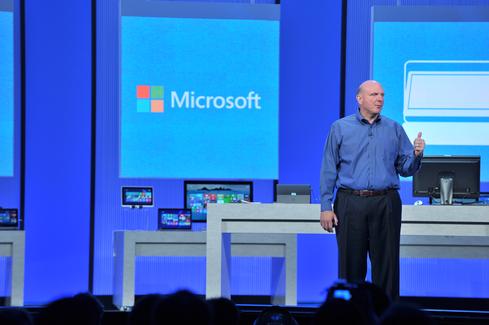
7 Mistakes Microsoft Made In 2013
(Click image for larger view and slideshow.)
Unified Communications is dead. Long live Universal Communications. That was the message delivered Tuesday by Gurdeep Singh Pall, Microsoft corporate VP for Lync & Skype Engineering at the company's Lync Conference 2014 in Las Vegas. And Microsoft intends to usher in that new era, he said.
"Today, we can shut the era of unified communication and move on to the era of universal communications," Pall declared, adding that in the next decade, 1 billion people will use Lync, Skype, and other apps that make up the company's "universal communication" assets.
"That is the aspiration," he said.
[Are Android apps coming to Windows? Read Microsoft's Windows Strategy Gets Muddy.]
Microsoft faces strong competitors such as Cisco, Siemens, Google, and ShoreTel in the unified communication and collaboration market, which research firm IDC estimates will be worth $21 billion this year. Lync is formidable in its own right; in September, the company said 90% of Fortune 100 companies use the product, and Pall said it is generating more than $1 billion annually.
Microsoft made several individual announcements, including video integration between Lync and Skype. The company also announced a Lync client will be available for Android tablets by this summer, adding to native apps that are available for Windows, Windows Phone, iOS, OS X, and Android smartphones. Microsoft also said Lync will soon be interoperable with Cisco Tandberg videoconferencing systems.
In sum, the announcements demonstrate the promise of retired CEO Steve Ballmer's "One Microsoft" strategy, which new CEO Satya Nadella appears to be broadly following. Users might move from PCs to tablets to mobile phones to smart TVs, but Microsoft's UC interface, tools and user experience, as well as the users' cloud-stored data, move along with them.
Between Lync and Skype, Microsoft now "offers a platform that allows people to start a conversation anywhere and from almost any device, and to rely on a cloud service that connects them with anyone on the planet," Giovanni Mezgec, GM of product marketing for Lync and Skype, said in an interview.
Pall scoffed during his keynote at frequent criticisms that Microsoft is too proprietary. Though he said the company and its partners are building Lync-optimized products, he also emphasized that a cross-platform approach is essential to making Microsoft's UC products universally accessible.
Figure 1:
Microsoft Corporate VP for Lync & Skype Engineering Gurdeep Singh Pall.
He noted that 130 million people use Skype on Android and iOS. "The next time someone says Microsoft is not committed to other ecosystems, ask them how many hundred millions users they have running on Android," Pall said, adding that the company has released multiple updates across all platforms over the last year, and that 60% of U.S. enterprises have deployed or are deploying Lync.
"The world has changed. People expect us to ship soon ... and we are executing at a fast pace," he stated.
Mezgec said Microsoft recognized years ago, when most communications systems relied on expensive hardware, that a software-based approach could pay dividends. "We had to integrate different communication modalities -- email, fax, video conferencing, chat, telephony -- into a single experience, and [integrate] it into productivity tools people use every day, namely Office."
Indeed, Microsoft's cross-platform approach is still engineered to push users toward other Windows products. Outlook.com integrates Skype, for example, and the company demonstrated how Windows Phone APIs allow Lync to respond to voice commands. To a degree, "One Microsoft" recognizes that future Windows platforms won't achieve the near-monopolies of the PC era, and that it makes sense to move services to the cloud, and to make native apps available on all popular platforms. Microsoft's strategic challenge, as the ongoing absence of a native version of Office for the iPad attests, is when and how to embrace rival platforms while still giving Windows 8 and Windows Phone 8 a chance to grow.
It remains to be seen when iPad users will finally gain Office apps, and whether they'll need Office 365 accounts to use them, but in the meantime, Lync represents
Next Page










